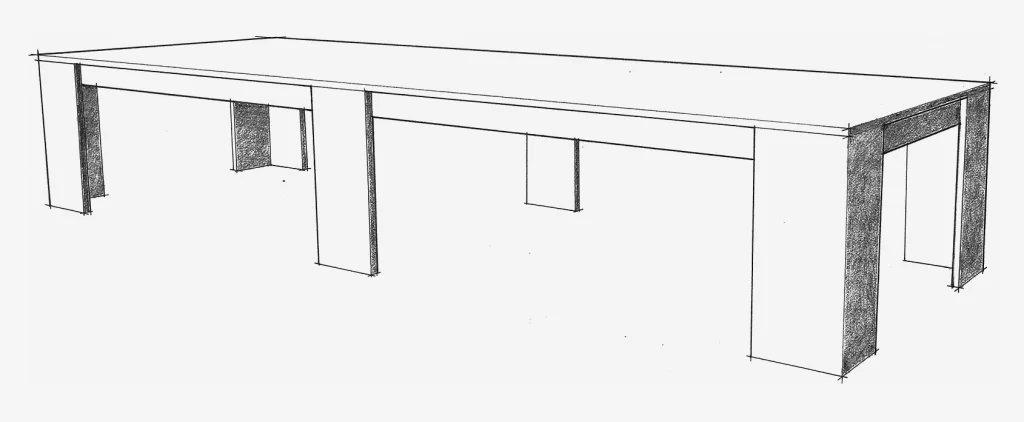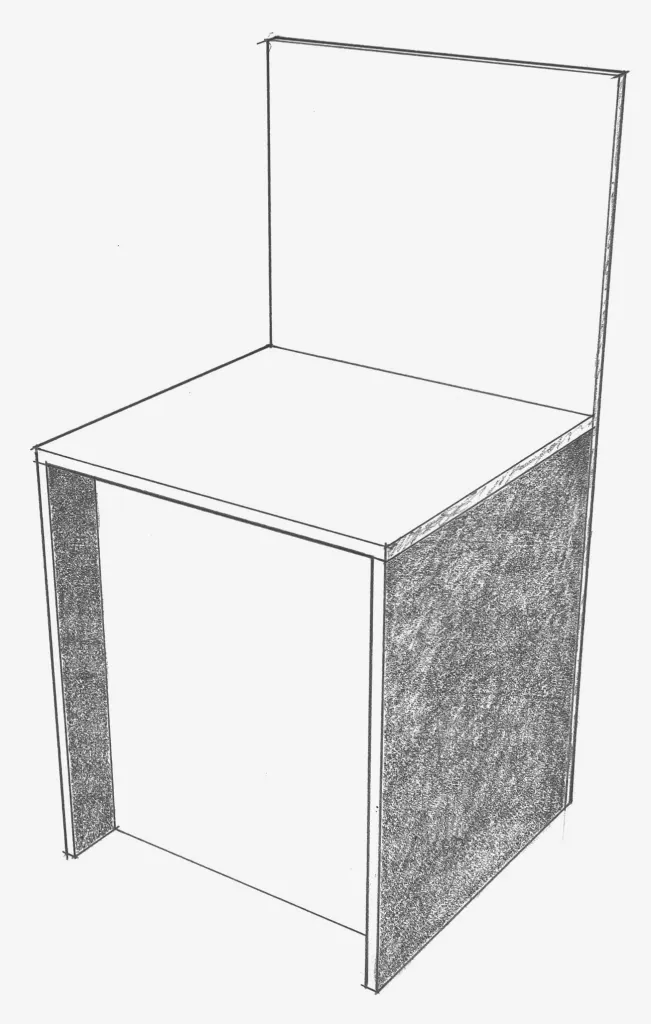Kim Kardashian knows a dupe when she sees it
Kim Kardashian knows a dupe when she sees it
The Donald Judd Foundation filed a lawsuit against Kardashian for commissioning and advertising knockoff designer furniture.
The business and media mogul Kim Kardashian has weathered her fair share of controversies, from questionable brand partnerships to her infamous claims of “It seems like nobody wants to work these days.” Now, she’s facing legal trouble for a more head-scratching infraction: reportedly playing off dupes of designer furniture as the real thing.
In a now-deleted YouTube video, Kardashian gives viewers a tour of the office space for her skincare company Skkn by Kim. One seemingly innocuous shot (which has since been meticulously analyzed frame-by-frame) shows Kardashian entering a cavernous kitchen space, where she points out her dining tables and chairs.
“If you guys are furniture people—because I’ve really gotten into furniture lately—these Donald Judd tables are really amazing,” Kardashian tells viewers, gesturing to two large, minimalist tables, complete with matching wooden chairs.
But according to a lawsuit filed Wednesday, Kardashian might not be as much of a “furniture person” as she claims. The Judd Foundation, a not-for-profit organization that upholds the legacy of artist and designer Donald Judd, claims in the suit that the furniture is not Donald Judd. Instead, it says the pieces are “poor-quality imitations masquerading as authentic Donald Judd tables and chairs.”
“Consumers will see the cheap knockoffs, be told they are authentic Donald Judd furniture, and erroneously associate those low-grade pieces with the Donald Judd brand,” the lawsuit goes on to state.
Harsh but true.

Knockoffs of designer furniture are nothing new, but they have been exploding in popularity through hype on TikTok and apps like Dupe, which specifically curates suggestions for replica furniture. However, the difference between inspiration and copyright infringement treads a fine line—and according to Vivek Jayaram, founder of the IP-focused law firm Jayaram Law, that line has almost definitely been crossed in this instance.
“This is a headline-grabbing case. But from a legal perspective, it’s relatively straightforward,” Jayaram wrote in an email to Fast Company. “Judd has protectable trade dress rights in the distinctive elements of his furniture design. This gives the artist the right to stop other furniture designers from making furniture that is confusingly similar to the Judd furniture. And that same federal law prohibits anyone from creating a false endorsement of a product or service. So the fact that Kim’s video falsely connects Judd to the furniture in the video could be a violation of the Lanham Act.”
The Lanham Act serves the purpose of preventing consumer confusion. In response to Kardashian’s YouTube video, the Judd Foundation is suing two parties under this act: Kardashian herself, for “false endorsement,” and the L.A.-based interior design firm Clements Design, for creating the supposed dupes and thus violating trade dress infringement. “In blatant disregard of Judd Foundation’s trademark and copyright rights, Clements Design manufactured and sold knockoff versions of the Donald Judd La Mansana Table and the Donald Judd Chair 84 to Ms. Kardashian,” the complaint reads.

The Judd Foundation believes that Kardashian reached out to Clements Design sometime in 2020 to request dining tables and chairs in the style of Donald Judd. In a statement to the New York Times, a representative from the foundation said that the authentic La Mansana Table sells for $90,000, while each of its 12 corresponding Chair 84 models cost $9,000.
The lawsuit’s highly detailed takedown of Kardashian’s office kitchen offers a glimpse into how designer brands understand what makes their homage furniture unique. Several side-by-side comparisons are included in the document to demonstrate that Kardashian’s dupes appear to be “slavishly” copied from Judd’s original designs.
The dimensions of the table, the suit claims, are identical to the La Mansana Table; further, they point to nonfunctional design elements like the “six wide rectangular table legs in an identical formation,” “legs at the corners that meet in orthogonal fashion and are flush to the table surface,” and “a sliver of rectangular skirting beneath the table” as markers of copyright infringement. Yet despite these similarities, Clements Design’s knockoffs lack the certain special something that makes a Judd a Judd.
That difference seems to mean little to Kardashian, who by all accounts could afford the real thing. To her, if it looks like a Judd, it is a Judd—at least for the purposes of self-promotion. It’s not uncommon for interior designers to commission custom furniture in the style of a famous designer, yet most can bank on it remaining a secret. Unfortunately, when your client is Kim Kardashian, there are no such protections. While Jayaram says all dupes are inherently deceitful, Kardashian’s unusual public visibility is what sets her apart from the average deal-seeker.
“If I uploaded a YouTube video making the same false claims as Kim, I could theoretically be liable for false endorsement under the Lanham Act,” Jayaram wrote. “But because I don’t have much of a following, and because my video would not have reached so many eyeballs, the Judd Foundation might never become aware of my dupe or, if they did, they may not take action since the harm is a lot less than when Kim posts the video to tens of millions of people.”
Fast Company
(17)



